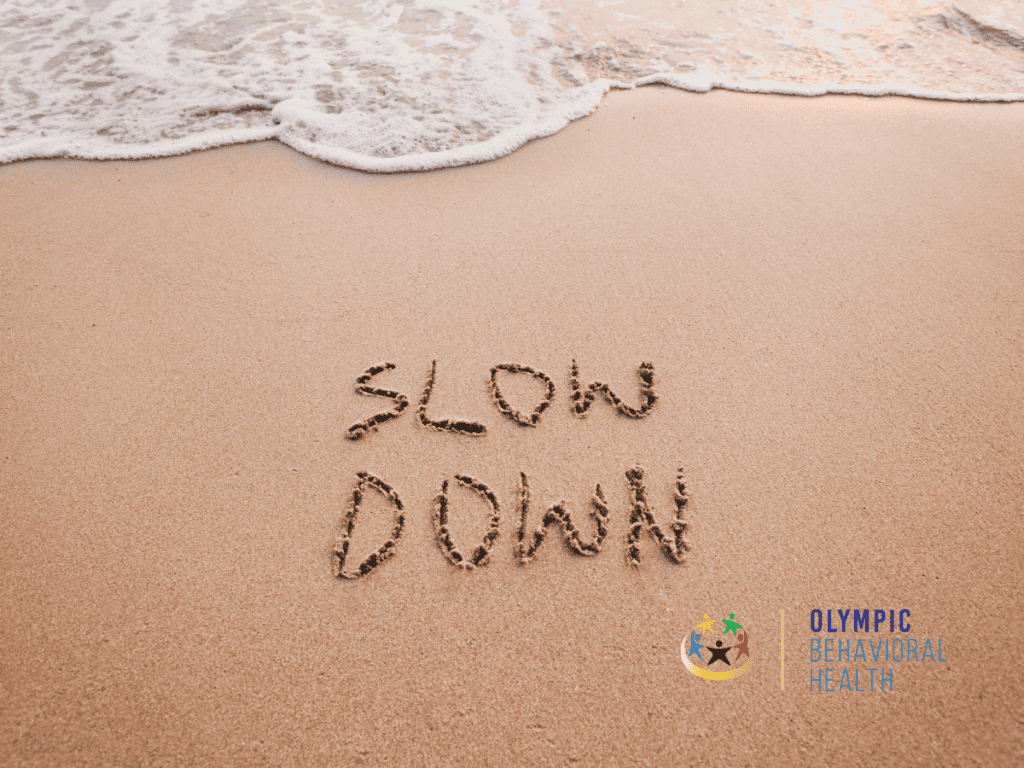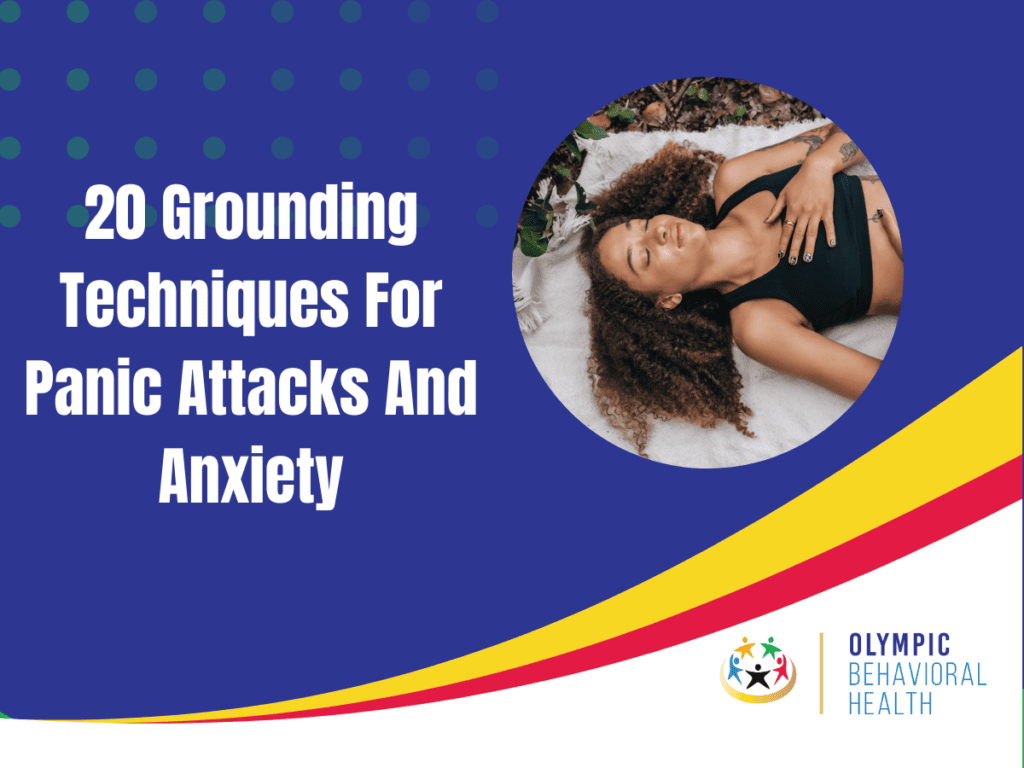Anxiety disorders are a significant challenge for those who are dealing with addiction. They are intertwined with the complex nature of substance abuse and recovery. One complex manifestation of anxiety disorders is Panic Disorder. It is characterized by sudden, intense episodes of fear that come with debilitating physical symptoms. These episodes can disrupt daily life and make it harder for individuals to achieve sobriety.
Anxiety disorders are common among people recovering from addiction. A comprehensive study showed that in the United States, Panic Disorder affects the lives of 6 million adults, which makes up 2.7% of the population. Generalized Anxiety Disorder (GAD) is another common anxiety disorder that affects 6.8 million adults or 3.1% of the U.S. population. Unfortunately, only 43.2% of those with GAD receive the necessary care, according to the National Institute of Mental Health (NIMH). This treatment gap is concerning.
To tackle addiction and anxiety, a comprehensive approach is required. One such approach involves the use of grounding techniques that can effectively mitigate panic attacks and anxiety symptoms. Grounding is a therapeutic method that enables individuals to distance themselves from troubling thoughts and emotions, which are often the root cause of panic attacks and heightened anxiety. By practicing grounding techniques, people can better manage their symptoms and improve their overall well-being.
These 20 grounding techniques are meticulously crafted to provide solace and support for those contending with panic attacks and anxiety in their journey toward addiction recovery. By offering practical methods to disengage from overwhelming thoughts and emotions, these grounding exercises establish a mental sanctuary conducive to refocusing on the present—a vital step towards reclaiming control amidst the tumult of anxiety and addiction.
What Are Grounding Techniques For Panic Attacks, Anxiety and Addiction?
Grounding techniques are incredibly helpful tools for managing panic attacks, anxiety, and addiction. These techniques can be a lifeline during moments of intense stress and can help individuals regain a sense of stability and composure in the midst of chaos.
Grounding techniques are a helpful way to redirect attention away from triggers of worry or panic. They help individuals to stay anchored in the present moment and quiet the restless corners of the mind that often trigger instinctive responses of “flight, fight, and freeze.” Grounding techniques can offer a reprieve from the relentless grip of anxiety and addiction.
Grounding techniques are not only useful for managing panic attacks and anxiety, but they are also crucial for coping with the daily pressures and triggers that come with addiction recovery. By intentionally practicing and trying out different techniques, people can discover which ones are most effective for their particular situations, and develop a path towards healing and resilience.

How to Ground Yourself During a Panic Attack?
The point of employing grounding techniques during anxiety attacks is to utilize an individual’s five senses to shift their focus to the present and distance them from negative thoughts or flashbacks. While grounding is not a permanent solution, it offers a temporary method to regain control over emotions and prevent escalating a panic attack or challenging situation. Grounding techniques can be categorized into three types: mental, physical, and soothing. The following is a compilation of grounding techniques for panic attacks, encompassing each category.
Physical Grounding Techniques For Panic Attacks And Anxiety
During a panic or anxiety attack, it’s crucial to regain a sense of control. Starting with your body can help manage symptoms and restore calm. Various physical grounding techniques can be employed for panic attacks and anxiety. Here are a few to consider:
1. Breathe Deeply
Engaging in slow, controlled breaths serves as an effective grounding technique. This method helps shift your focus to your body, enabling you to regain control over your thoughts and emotions.
Consider trying the “Box Breathing Technique”:
- Inhale slowly for 4 seconds
- Hold your breath for 4 seconds
- Exhale slowly for 4 seconds
- Hold again for 4 seconds, then repeat the process.
This approach promotes relaxation and stability for both your body and mind.
2. Pick Or Touch Items Near You
Another effective grounding technique involves utilizing your sense of touch. Engaging in a simple action like running your hand through water can be beneficial. Focus on the sensation, and you’ll observe your mind gradually shifting to the present moment.
3. Engage All Of Your Senses
Engaging your senses is beneficial to bring yourself into the present moment. Use grounding techniques involving your five senses – taste, touch, sight, smell, and hearing. For example, you can hold an ice cube, inhale the scent of an essential oil, enjoy food or drink mindfully, or watch your favorite TV show.
4. The 5-4-3-2-1 Technique
The 5-4-3-2-1 technique is a highly effective strategy to employ. It involves focusing on the present moment by engaging your five senses. For instance:
- Identify 5 things you can see around you.
- Recognize 4 things you can hear.
- Acknowledge 3 things you can touch.
- Note 2 things you can smell.
- Identify 1 thing you can taste.
By doing this, you gradually bring your mind back to the present.
5. The 3-3-3 rule
The 3-3-3 rule serves as a straightforward and effective technique for immediate anxiety management. It revolves around directing your attention to your immediate surroundings and engaging your senses to ground yourself and alleviate anxiety.
Here’s how to apply the 3-3-3 rule:
- Observe and identify three things you can see in your environment. Take a moment to observe and mentally describe these objects, colors, or elements around you.
- Listen to three things you can hear: traffic sounds, birds chirping, or a clock ticking. Allow these sounds to anchor you to the present moment.
- Move three parts of your body, whether wiggling your toes, stretching your arms, or rolling your shoulders. This physical movement helps shift your focus away from anxious thoughts and toward your body.
6. Move Your Body
Connecting with your body through movement is another option. Engaging in uncomplicated exercises redirects your attention from anxiety to the sensations in your body generated by the activity. Simple stretches or yoga can also produce a similar effect.
7. Feel Your Body
One of the most straightforward grounding techniques for anxiety involves tuning into the sensations of your body. Various options are available, such as:
- Rubbing your hands together
- Massaging your temples
- Clenching your fists to alleviate tension
- Stamping your feet on the ground, focusing on the sensations
- Placing your feet flat on the ground and wiggling your toes while attending to the sensations.
8. Try Muscle Relaxation Exercises
Muscle relaxation exercises serve as effective grounding techniques as well. The concept involves tensing your muscles and gradually releasing them. Whether starting from your toes and progressing to your thighs and hands or concentrating on a specific body part, be mindful of the sensations and the ensuing relaxation.

Mental Grounding Techniques For Panic Attacks And Anxiety During Addiction Recovery
Amidst the chaos of panic attacks, anxiety, and addiction, mental exercises can be powerful tools for finding relief. These exercises offer a way to ease the grip of worry and apprehension, creating a sense of calm within the turmoil.
The key is to find a mental exercise that acts as a guide, redirecting attention away from the unsettling currents of anxiety and addiction and towards a peaceful state. By identifying techniques that effectively redirect focus and cultivate a sense of calm, individuals can create a mental sanctuary, protected against the constant onslaught of panic and unease.
There are numerous exercises to explore, and here are a few examples to initiate the process:
- Participate in a memory game.
- Push your cognitive abilities with math problems or number puzzles.
- Pause to observe and articulate the specifics of your environment.
- Experiment with reading something in reverse for a fresh perspective.
- Evaluate your memory by recalling the names of all your family members.
- Enjoy the task of spelling your name in reverse.
- Choose an object and provide a detailed description of it.
These exercises are not about achieving perfection or showcasing performance. Instead, they are about discovering an activity that aids in redirecting your thoughts and finding a moment of peace.
Soothing Grounding Techniques For Panic Attacks And Anxiety
Employing comforting grounding techniques for anxiety and panic attacks can be highly effective. When experiencing feelings of worry, fear, anxiety, or depression, redirecting your focus becomes crucial.
Exploring various activities that bring you a sense of well-being is essential, and engaging in a favorite activity often proves beneficial. Consider the following options:
1. Practice Self-kindness
During challenging times, negative thoughts are inevitable. However, you can interrupt these thoughts with affirmations such as, “It’s just a tough day, and you can handle it.” Repeat these positive affirmations until you feel an improvement.
2. Listen to Music
Music has a calming effect on the body’s stress levels. When negative thoughts arise, play your favorite music and let yourself dance to the rhythm. Soon, you’ll find yourself feeling much better.
3. List Positive Things
Anxiety and panic episodes can lead to a focus on the negatives. Redirect your focus by creating a list of all the positive things happening in your life.
4. Play With Your Pet
Interacting with your pet can have a soothing effect and redirect your focus. Pay attention to the sensation of your hand moving on their fur and observe the intricate details of their features to focus on something delightful.
5. Visualize Something Positive in Your Life
Facing life’s challenges involves recognizing your strengths and joyous moments. Take a moment to reflect and identify those instances of positivity. Contemplate something that brings you joy, happiness, or peace. It could be a cherished memory, a loved one’s smile, or a small personal accomplishment.

Can Grounding Techniques Cure Panic Disorder?
Grounding techniques are not a cure for panic attacks; instead, they are strategies to help manage and alleviate the symptoms associated with panic attacks. Panic attacks are complex and can be influenced by various factors, including biological, psychological, and environmental elements. While grounding techniques can be valuable in managing panic attacks, they may not address the root causes or provide a permanent solution.
It’s crucial to approach panic attacks with a comprehensive approach that may include therapy, lifestyle adjustments, and, in some cases, medication prescribed by a healthcare professional. Suppose you are experiencing panic attacks or significant anxiety. In that case, seeking guidance from a mental health professional who can provide personalized advice and develop a treatment plan tailored to your needs is advisable. Remember that mental health conditions are complex, and effective management often involves a combination of therapeutic approaches.
Can Grounding Techniques Be Used In Conjunction With Therapy?
Yes, grounding techniques can complement therapy. Many therapists incorporate grounding exercises as part of their treatment plans to help individuals manage anxiety symptoms between sessions.
What Does Therapy Offer That Grounding Techniques May Not?
Therapy offers a broader range of evidence-based tools and techniques targeting different aspects of anxiety. It provides a long-term strategy for sustainable well-being and helps individuals address underlying mental health concerns.
How Does Addiction Interact with Anxiety and Panic Attacks?
Addiction can exacerbate anxiety and panic attacks, creating a vicious cycle where substance use becomes a coping mechanism for managing overwhelming feelings. Conversely, anxiety and panic attacks can trigger cravings for substances as individuals seek relief from distressing symptoms. This interplay often complicates recovery efforts and underscores the importance of addressing both addiction and anxiety concurrently.
Can Grounding Techniques Help Individuals in Addiction Recovery Manage Anxiety and Cravings?
Yes, grounding techniques can be invaluable tools for individuals in addiction recovery. By providing strategies to manage anxiety and cravings, grounding techniques offer practical ways to cope with triggers and stressors without resorting to substance use. These techniques enable individuals to regain control over their thoughts and emotions, fostering resilience and enhancing their ability to navigate challenges during recovery.
What Role Does Medication Play in Treating Co-occurring Addiction and Anxiety Disorders?
Medication can be an important component of treatment for individuals with co-occurring addiction and anxiety disorders. Certain medications may help alleviate symptoms of anxiety and reduce the risk of relapse in individuals recovering from addiction. However, medication should be prescribed and monitored by a qualified healthcare professional as part of a comprehensive treatment plan that also includes therapy, support groups, and other interventions tailored to the individual’s needs.
Why Seeking Guidance from a Licensed Professional is Crucial for Managing Anxiety and Addiction?
In the journey of coping with anxiety and addiction, incorporating grounding techniques is valuable. However, it’s important to complement these strategies with the expert support and guidance of a licensed professional. Here is why:
- Comprehensive Approach: Therapy provides a holistic and personalized approach to understanding and managing anxiety and addiction. Professionals use evidence-based tools and techniques to address various aspects of these conditions, ensuring a thorough treatment plan.
- Safe Environment: Dealing with anxiety and addiction can bring up overwhelming emotions. Therapists offer a safe and non-judgmental space where individuals can openly discuss their concerns without fear of stigma.
- Addressing Root Causes: Therapy helps uncover underlying issues contributing to anxiety and addiction. By addressing these root causes, individuals can effectively manage symptoms and work towards long-term recovery.
- Sustainable Well-Being: Effective management involves developing strategies for long-term well-being. Licensed professionals provide ongoing support, empowering individuals to navigate challenges and make lasting changes for overall wellness.
Can Grounding Techniques for Panic Attacks be Helpful for Those in Addiction Recovery?
Grounding techniques for managing panic attacks in recovery can be extremely beneficial for individuals struggling with addiction. By learning techniques to stay present and calm during a panic attack, those in recovery can prevent relapse triggers and maintain sobriety. Grounding exercises like deep breathing and mindfulness can provide stability in moments of overwhelming anxiety.
Get Help From Olympic Behavioral Health
While grounding techniques serve as valuable tools for managing anxiety and panic attacks, it’s crucial to recognize the comprehensive benefits that professional support can offer, especially in the context of addiction. Therapy, with its personalized and evidence-based approach, addresses the root causes of anxiety and addiction, providing long-term strategies for sustained well-being.
At Olympic Behavioral Health, we’re here to assist you on your journey towards managing anxiety and addiction. Our team of dedicated professionals offers expert guidance and a caring environment to support your mental health needs. Take the first step towards a calmer, more grounded life by reaching out to Olympic Behavioral Health today. Your well-being is our priority.

Share This Post



